Couch Grass- Your Guide
Couch grass, sometimes referred to in other markets as ‘Bermuda Grass’ and less frequently by its scientific name Cynodon dactylon, has been a staple of the Australian lawn ...

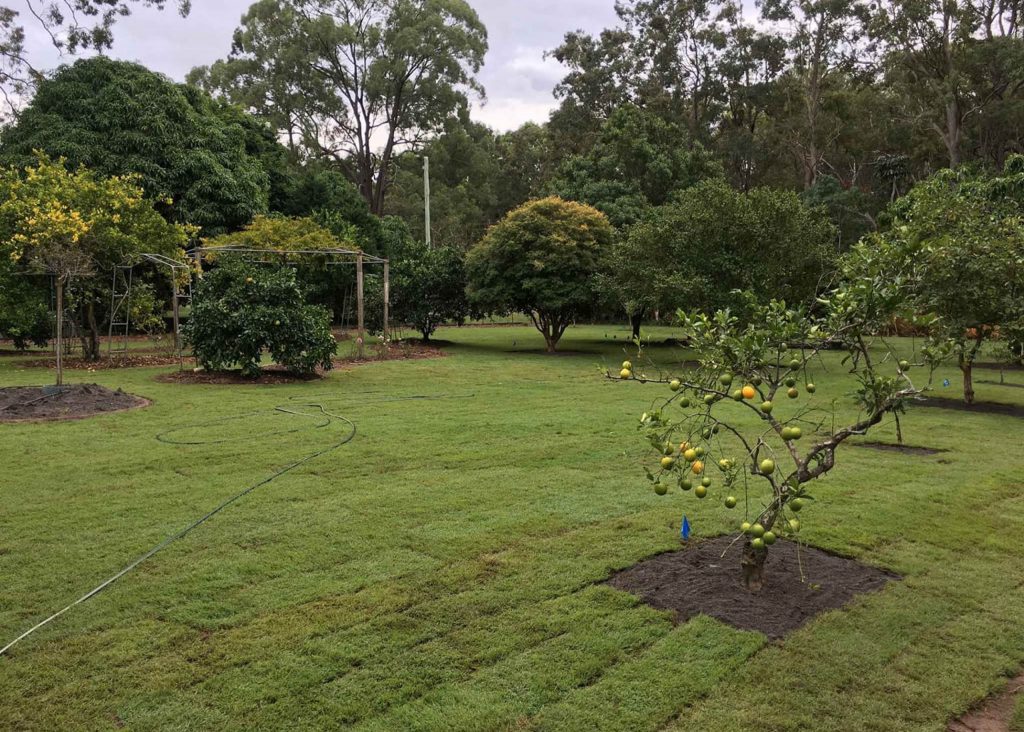 Bermuda Grass is a sun-loving grass variety that grows well in almost all parts of Australia. Better known as Couch grass, it features fine leaves and a stunning deep green colour. Bermuda grass copes exceptionally well with high temperatures and long periods of drought but comes into its own as a hardy solution for high traffic areas.
Bermuda Grass is a sun-loving grass variety that grows well in almost all parts of Australia. Better known as Couch grass, it features fine leaves and a stunning deep green colour. Bermuda grass copes exceptionally well with high temperatures and long periods of drought but comes into its own as a hardy solution for high traffic areas.
In this article, we look at why Bermuda Grass makes an excellent lawn choice for Australian households.
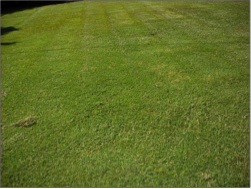 Bermuda grass, better known as Couch grass in Australia, is a warm season grass that is known for its hard-wearing qualities. Native to Africa, it is especially well-suited to Australia, demonstrating excellent performance, and cementing its place as a popular lawn variety for homeowners.
Bermuda grass, better known as Couch grass in Australia, is a warm season grass that is known for its hard-wearing qualities. Native to Africa, it is especially well-suited to Australia, demonstrating excellent performance, and cementing its place as a popular lawn variety for homeowners.
With a beautiful dark green colour that holds well in winter in temperate climates, Bermuda grass features fine, pointy tipped leaves, and is soft underfoot, which makes it ideal for backyard play for children and pets.
Bermuda grass is a vigorous grower, spreading horizontally via rhizomes and stolons. This makes it quick to establish and fast to repair, but may mean that it requires more frequent mowing than other grass varieties.
Bermuda grass is also tolerant of salt, which makes it a good choice for homes located near the beach or waterfront locations.
Bermuda grass is a sun-loving variety, and as such, does not perform as well as other grass varieties in highly shaded areas.
In cool or frosty conditions, Bermuda grass has a tendency to go dormant but will bounce back once conditions improve.
Bermuda grass is known for its drought tolerance, thanks to its robust deep-rooted system that gives it an advantage over other varieties during drought and stressful conditions. It is an ideal choice for areas where water restrictions are commonly imposed.
In dry hot summers, where Bermuda grass has dried off due to lack of water, it is one of the first turf varieties to easily recover.
Bermuda grass has earned the reputation as the ‘go-to’ turf variety for schools and sports fields, thanks to its excellent wear tolerance.
Bermuda grass is an excellent option for high traffic areas and will cope with pets or children playing in the yard. It forms a moderate thatch layer, which provides protection against damage, and its deep root system allows for a quick recovery if the grass is trampled.
Bermuda grasses are renowned for being low maintenance lawns. However, regular lawn care will ensure that your Bermuda grass stays in top health through tougher conditions.
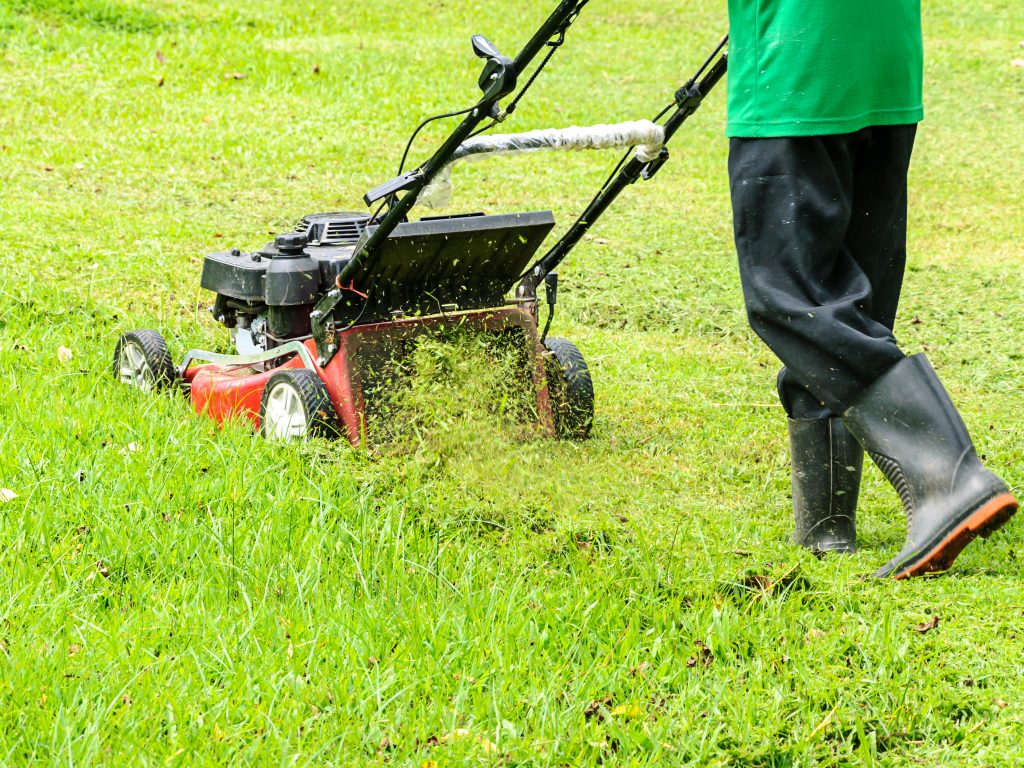 Bermuda grass tends to grow laterally, which results in a lack of upright growth. This means that it can be cut quite low and may require less mowing than other types of turf grass.
Bermuda grass tends to grow laterally, which results in a lack of upright growth. This means that it can be cut quite low and may require less mowing than other types of turf grass.
The recommended mowing frequency for Bermuda grass is twice a month during summer and spring, and once a month during winter and autumn.
Mowing height varies by season, with a range of 18mm-30mm being typical. In shaded areas, the grass should be mowed 5mm-10mm higher than in sunny areas.
Bermuda grass features moderate thatching, which makes it very resistant to wear. Annual dethatching may be required.
When you first lay your Bermuda grass, it’s important to give it a deep watering at least once a week so that the roots can establish themselves. Once the roots are established, you can water less frequently.
In summer, you’ll need to water every 7-10 days, but in cooler months you can get away with watering less often. If there are times when you can’t water your lawn due to water restrictions, don’t worry – the grass will turn green again as soon as you’re able to water it or if it rains.
Watering through winter will help maintain its colour but try not to over-water.
Bermuda grasses respond well to small amounts of fertiliser, so you don’t need to fertilise too often.
To maintain winter colour, you can apply a slow-release fertiliser in mid-late autumn.
Thanks to its dense, vigorous growing habit, Bermuda grass outcompetes most weeds. However, it can be susceptible to certain lawn pests, such as Lawn Grubs and Army Worms, as well as the African Black Beetle.
If you suspect pests in your Bermuda grass, you should treat them with an appropriate pesticide, and consult your Local Garden Centre if you require further advice.
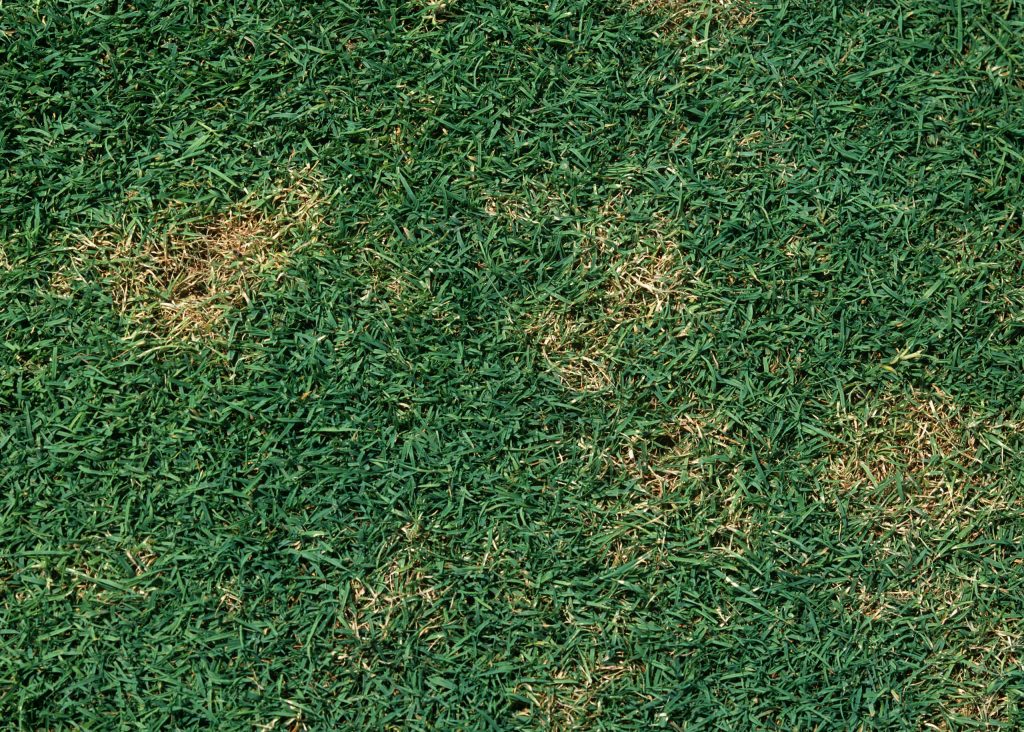 Bermuda grass may be impacted by a fungal disease called Dollar Spot. Dollar Spot can develop rapidly in humid weather so is more prevalent in northern New South Wales and Queensland from November to March.
Bermuda grass may be impacted by a fungal disease called Dollar Spot. Dollar Spot can develop rapidly in humid weather so is more prevalent in northern New South Wales and Queensland from November to March.
The best way to control Dollar Spot in Bermuda grass is to aerate or dethatch your lawn to prevent the fungal infection from establishing in the lawn. If your lawn is already infected by Dollar Spot, a fungicide suitable for Bermuda grass can be used.
If you’re looking for a suitable Bermuda grass, better known as Couch in Australia, myhomeTURF recommends two Australian grown varieties.
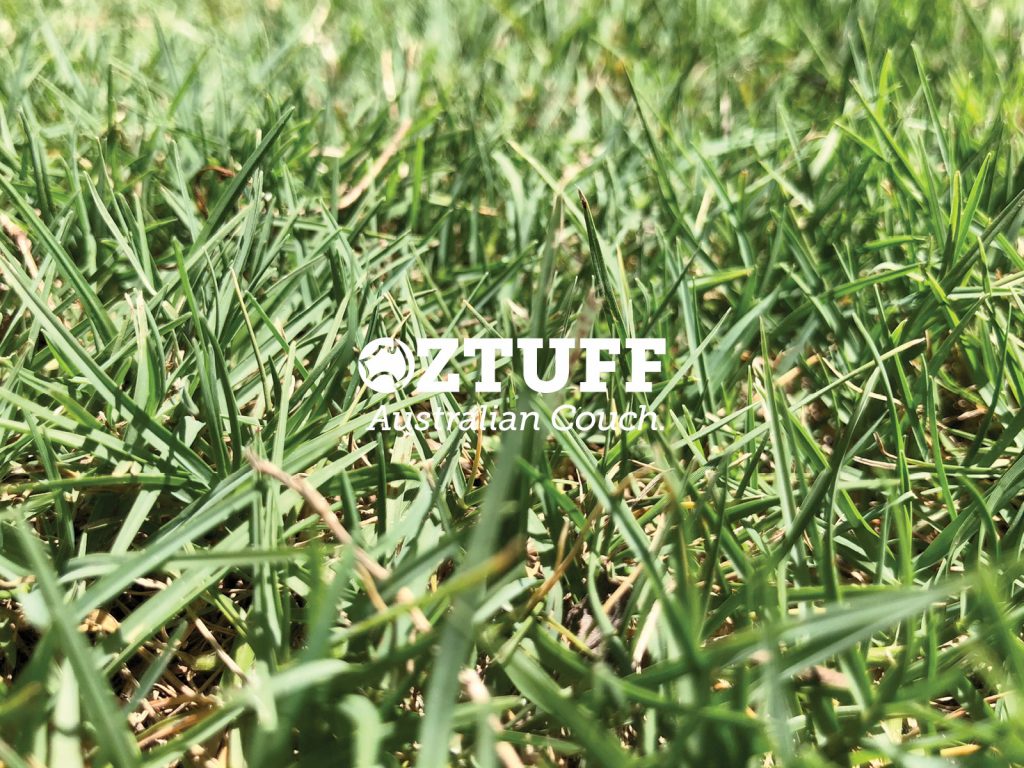 OZTUFF Couch is a fine leafed, low maintenance grass requiring minimum input, low fertiliser and water requirements year-round. A hard-wearing tough, quick-recovering grass for your back yard or sports field, OZTUFF Couch boasts an eye-catching deep green colour, even when grown in poor quality soils or where nutrition is low.
OZTUFF Couch is a fine leafed, low maintenance grass requiring minimum input, low fertiliser and water requirements year-round. A hard-wearing tough, quick-recovering grass for your back yard or sports field, OZTUFF Couch boasts an eye-catching deep green colour, even when grown in poor quality soils or where nutrition is low.
Known as “the lawn that can take care of itself”, OZTUFF also has the highest salt tolerance of any couch variety making it suitable for beachfront properties and pool sides.
Where it grows: OZTUFF is suitable for all growing environments along the eastern seaboard from Brisbane down to Melbourne.
Expect to pay: Between $8-14 per square metre.
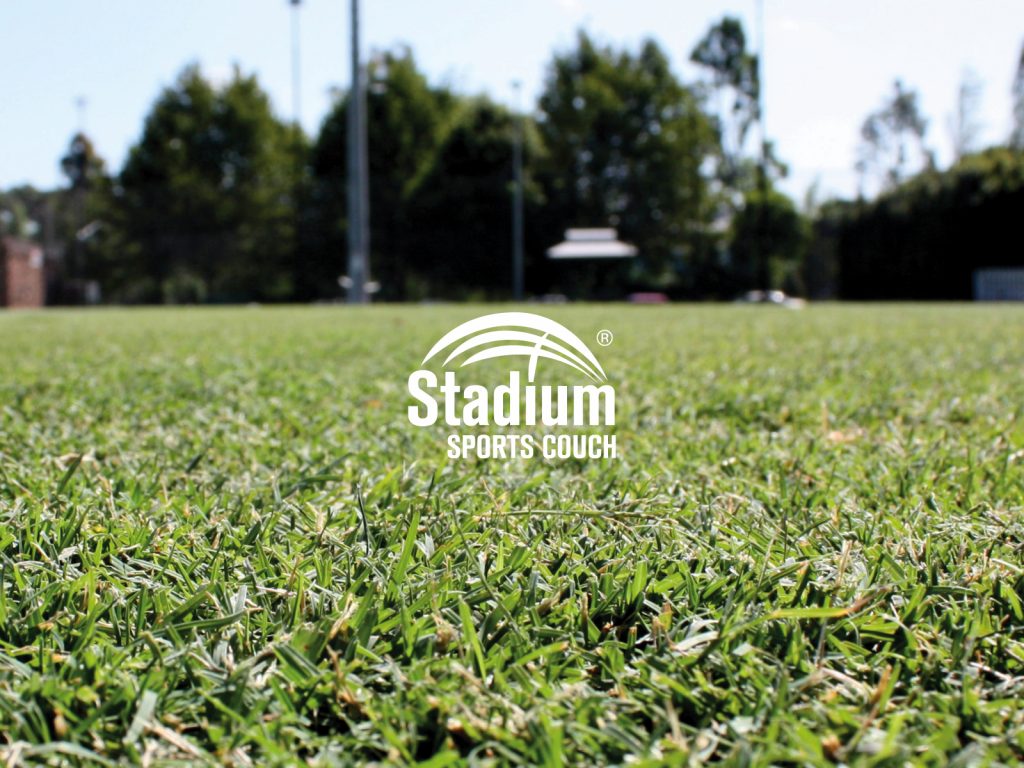 Stadium® Sports Couch is bred for both the homeowner and sporting arena and is the darkest green Couch available. Stadium turf stays naturally dark green even with low fertiliser application compared to other Couch types. In warm, humid conditions Stadium turf copes extremely well and has no major thatch issues – meaning less maintenance.
Stadium® Sports Couch is bred for both the homeowner and sporting arena and is the darkest green Couch available. Stadium turf stays naturally dark green even with low fertiliser application compared to other Couch types. In warm, humid conditions Stadium turf copes extremely well and has no major thatch issues – meaning less maintenance.
Where it grows: This tough Couch variety grows well in areas from Sydney through to mid-north Queensland.
Expect to pay: Between $8-14 per square metre.
Bermuda Grass is a sun-loving grass variety that grows well in almost all parts of Australia. Better known as Couch grass, Bermuda grass copes exceptionally well with high temperatures and can survive through long periods of drought.
Notable for its fine leaves, deep green colour, and ability to withstand heavy foot traffic, Bermuda grasses are perfectly suited for sports fields, and family backyards alike. myhomeTURF has two exceptional varieties suited to Australian conditions – OZTUFF and Stadium Sports – that are both high performing, and very affordable.
For expert advice on the right grass selection for your home, speak to your local turf farmer for supplier. Use myhomeTURF ‘s Find a Turf Supplier to locate a supplier in your area.